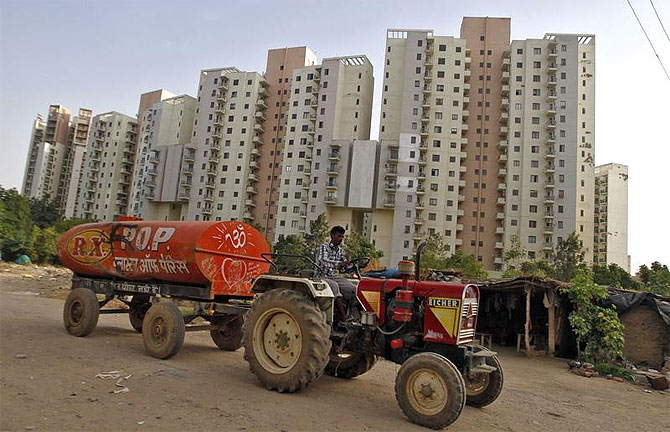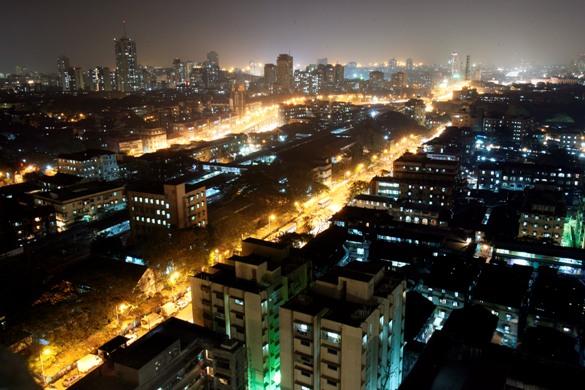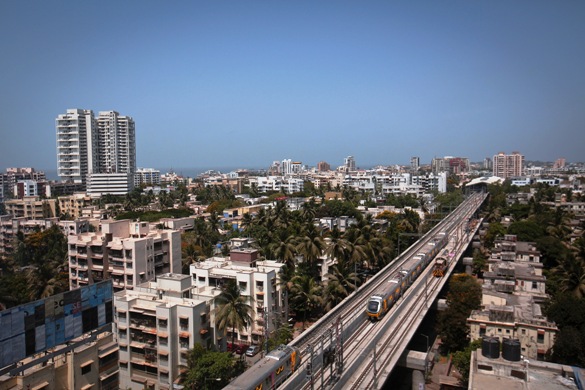Photographs: Jitendra Prakash/Reuters Sumanta Dey in Bengaluru
After years of double-digit growth, house price rises in major Indian cities are expected to slow to just under 8 per cent next year as a cooling economy and rising interest rates deter new buyers, a Reuters poll showed.
The survey of 11 property market analysts conducted over the past three weeks was for house prices in Asia's third-largest economy to rise 7.8 per cent next year, well below the current rate of consumer inflation of around 10 per cent.
The findings of the latest India housing market poll are similar to recent Reuters polls conducted in the United States, Canada, Britain, China and Brazil, where home price rises are also expected to lose momentum but not fall.
. . .
Runaway house price boom seen slowing to a jog
Photographs: Reuters
Home sales in India slowed this year and unsold inventory with builders has increased as economic growth in the broader economy has decelerated quickly to half the 10 per cent rate it was running at before 2008.
But the main problem, in a country where almost one-quarter of the population earns less than 50 cents a day, is the price.
"In some of the key markets in the country property prices are sky high," said Sachin Sandhir, managing director at RICS South Asia.
"Due to uncertainty about the economy, high interest rates and rising inflation, developers are holding on to their prices, making some locations unaffordable."
. . .
Runaway house price boom seen slowing to a jog
Photographs: Reuters
Indeed, a 2,000 sq.ft (185.8 sq.metre) apartment in the posh South Mumbai neighbourhood of Malabar Hill costs more than $2 million.
That is not far from the average three-bedroom unit in Manhattan, New York City, which costs around $2.6 million.
Although the majority of homes in Indian cities are nowhere near that expensive, it shows how far real estate values in India's financial capital have risen.
And dwindling incomes have put low-cost homes out of reach for many people.
Most of the urban price rises are expected to take place in the southern coastal city of Chennai, followed by New Delhi and its suburbs and Bangalore, while already high prices in Mumbai will likely stagnate.
. . .
Runaway house price boom seen slowing to a jog
Image: An aerial view of a central district of Mumbai.Photographs: Arko Datta/Reuters
Analysts gave property in Mumbai and Delhi, India's two biggest cities, an overall rating of 9 on a 10-point scale where 1 is extremely undervalued, and 10 is highly overvalued.
That is a much higher rating than in similar Reuters polls conducted around the world. Prices in the UK, which have re-touched record highs by some measures and are soaring in London, were rated 6, while those in Canada were rated 6.3.
Interest rate rises biting
The Reserve Bank of India's determination to bring down broader inflation in the economy has also slowed the market.
The RBI hiked its benchmark repo rate twice in September and November as it tries to rein in soaring prices and there is an outside chance it could tighten again at a meeting next week.
It even nudged hesitant commercial banks to pass on the increases to borrowers.
A home loan of up to Rs 30 lakhs (Rs 3 million) from the country's largest home finance company, HDFC, now costs 10.5 per cent per year, up 35 basis points since the start of the year.
A bigger mortgage costs more.
. . .
Runaway house price boom seen slowing to a jog
Image: Metro trains pass through a residential area during its first official safety trial run in Mumbai.Photographs: Danish Siddiqui/Reuters
Buying a house in India has traditionally been a sentimental decision, not for investment.
But soaring prices in recent years has led a growing middle class to turn to real estate as a means of generating wealth.
Unsold inventory of development properties aimed at that new type of buyer is now a cause for concern, say analysts.
"How can someone take a long-term loan without income growth or guarantee?" asked Samantak Das, chief economist at Knight Frank India.
"Inventory pressure on developers in Mumbai and Delhi is actually going up."
According to Knight Frank research, it takes nine quarters for developers in Mumbai to sell existing inventory, almost twice the five quarters it took in December 2011.
New launches in the city plummeted over 40 per cent compared to peak levels in 2010 as developers focussed on selling current inventories, according to their recent report.







article